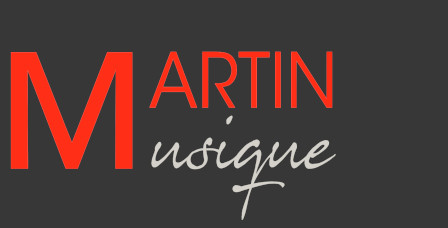Michel CORRETTE
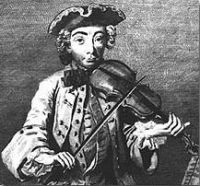
Michel Corrette was a French composer and organist born in Rouen April 10, 1707 and died in Paris January 21, 1795. Micchel Corrette left Rouen in 1720 to pursue an education which had probably been started by his father Gaspard. In 1726, he ran the contest for the post of organist at the church of Sainte-Madeleine in the City, the three competitors have also played well, but the position is assigned to Thoutain. Corrette then earning his living as a music teacher since 1727 and he published his first collections of sonatas (flute, violin, brass and also musette, hurdy gurdy, which became fashionable). In 1728 he is one of the first French musicians to edit concertos, after the model of Vivaldi's ritornello. January 8, 1733, he married Marie-Catherine Morize, whom he had two children. At that time it just be hired as chief of orchestra in fairs of Paris Saint-Laurent (autumn) and Saint-Germain (until early February to Palm) where the theaters which amused the audience had taken the name of "comic opera". Corrette it creates its famous concertos comic: compounds on popular themes, they served as entertainment danced between plays, mostly one-act. The series of 25 comic concertos will continue until in 1773. Became organist of St. Mary's Hall, in 1737 he published his First Book of Organ, followed in 1750 and in 1756 by a Second and a Third Books. It is thus at the service of the priors of the Temple, from the royal family: the knight of successively Orleans, Prince de Conti (prior to 1749 until his death in 1776) and the Duke of Angoulême. The title page of his First Book of Christmas (1741) presents him as organist of the Professed House of Jesuits, c is to say, the Church of St. Louis, where music was much appreciated. The musician will leave this podium in 1762, when the expulsion of the Company. Michel Corrette is one of the best Parisian organists to Paris: he shall hold office until the Temple of Paris that the French Revolution decommission the church in 1791. Corrette published the last book of the Old Regime organ: Pieces for the organ in a new genre (1787). Corrette, who holds the official duties of organist, is also a prolific composer, and the set of his book makes us better understand the practice and the evolution of musical taste in his time in Paris. If we take the example of his works for the harpsichord, we see that his First Book (1734) is still close to Couperin (dance suites with titles), but the following eight books, entitled The Amusements of Parnassus ( from 1749 to 1772) show a progression that begins with a method for beginners (Book I) s towards variations of the themes of comic concertos (Book II), then to transcripts of famous arias (Book III, IV, VI), and finally the transcripts of military marches, and fashionable ballads (Book VIII) we notice that the books V and VII are lost. Added to this lovely sonatas for harpsichord and violin (1742), and Entertainment for harpsichord or pianoforte (1779) that go up to use clusters (gun shots in the Naval Battle). Corrette was also a great teacher, as evidenced by his instrumental methods. Just see the list to understand that the encyclopedists like he wanted to codify and divulge all the musical practices of his time. Its accompanying books (The Master of harpsichord, and 1753 Prototypes, 1754) have had tremendous success, if we judge by the number of copies that are found in large libraries. Corrette organized home from 1748 weekly concerts where he performed with his students and gifted amateurs, such as the Prince of Ardore or German musicologist Marpurg. It also allowed him to sell and distribute scores of Italian music which he was a strong supporter. Corrette has been granted privileges to edit not only his own works, but the musicians of his choice, and particularly of the Italian masters. C is in the context of these private concerts that he would play his concertos for harpsichord or organ (among the earliest keyboard concertos in France, 1756) and numerous sonatas and concertos for all kinds of instruments, including Orpheus of the viola, an instrument that he invented for use viols neglected by mounting them with metal strings! (1773). His religious music (motets, masses, psalms) has almost completely disappeared, except the Psalm Laudate Dominum, arranged in the Spring of Vivaldi (1765), the Lessons of Darkness III (1784) and the Four Masses to two equal voices (1788) which were published during his lifetime. Corrette in his old age still s interest in the events which upset his country, and publishes works of revolutionaries who are unfortunately lost. He died at age 88 January 21, 1795. Michel Corrette, who has been unjustly neglected, holds a unique place in the music of the eighteenth century French. It has been both a servant of the greatest characters of the State (the priors of the Temple in the eighteenth century are princes of the blood) and an artist who's interested in popular music and the emotions of the population (eg in 1783 he celebrated the first flight with the airline flying cantata The Globe!). It is both a defender of the French repertoire (ballads, airs in fashion) and a propagator of Italian music. Always on the lookout for new products of Parisian musical life, he picked the best and he makes it his property, with an unalterable cheerfulness and humor, full of spirit. While scholarly and erudite even, he made a pleasant music that apparently no other purpose than to ad to be well made and want to please the fans more and more who want to play music at a time when No more art belongs only to professionals but becomes accessible to the many dilettantes, from both of the nobility, the bourgeoisie and the new middle classes. Michel Corrette we find a happy and joyful music, quite in the spirit of the age of Louis XV. Google machine translation: Michel CORRETTE's original bio |
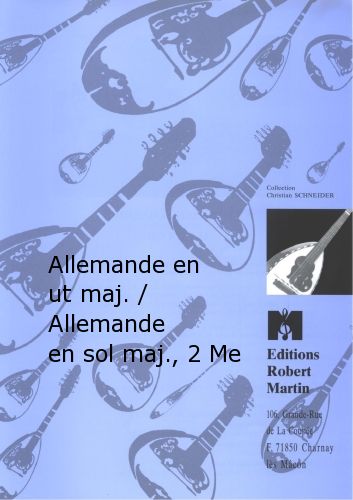 |
| ||
| Michel CORRETTE Publisher : Robert Martin Genre : Instrumental music Group : Mandolin, mandole Style & options : Two, three, four mandolins |
(CORR03298) : € 10,02 | ||
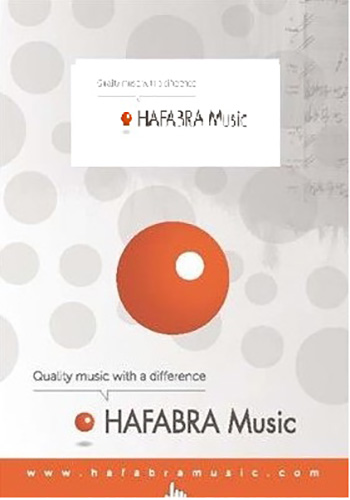 |
| ||
| Michel CORRETTE Publisher : Martinus Genre : Orchestra Group : Wind band Style & options : wind band with soloist(s) |
Set Wind Band (MT363-BA) : € 81,75 Full score (MT363-CO) : € 16,35 |
||
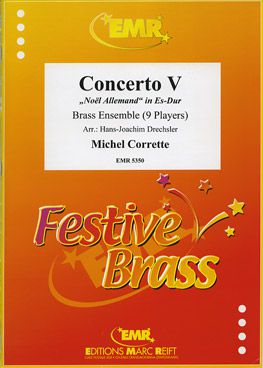 |
| ||
| Michel CORRETTE Publisher : Marc Reift Genre : Instrumental music |
(EMR5350) : € 38,57 | ||
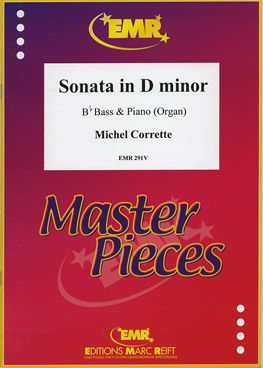 |
| ||
| Michel CORRETTE Publisher : Marc Reift Genre : Instrumental music |
(EMR291V) : € 24,33 | ||
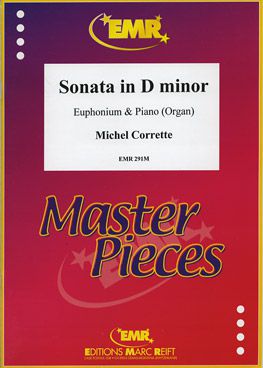 |
| ||
| Michel CORRETTE Publisher : Marc Reift Genre : Instrumental music |
(EMR291M) : € 24,33 | ||
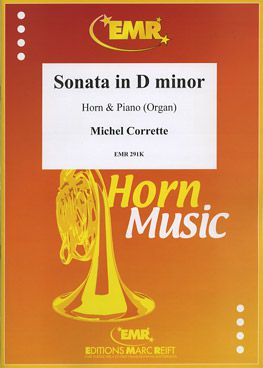 |
| ||
| Michel CORRETTE Publisher : Marc Reift Genre : Instrumental music |
(EMR291K) : € 24,33 | ||
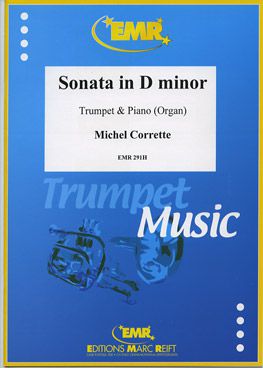 |
| ||
| Michel CORRETTE Publisher : Marc Reift Genre : Instrumental music |
(EMR291H) : € 24,33 | ||
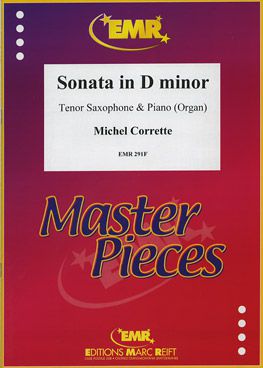 |
| ||
| Michel CORRETTE Publisher : Marc Reift Genre : Instrumental music |
(EMR291F) : € 24,33 | ||
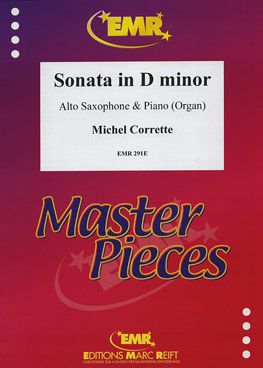 |
| ||
| Michel CORRETTE Publisher : Marc Reift Genre : Instrumental music |
(EMR291E) : € 24,33 | ||
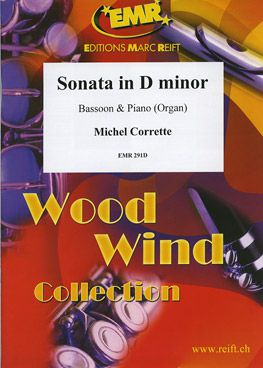 |
| ||
| Michel CORRETTE Publisher : Marc Reift Genre : Instrumental music |
(EMR291D) : € 24,33 | ||
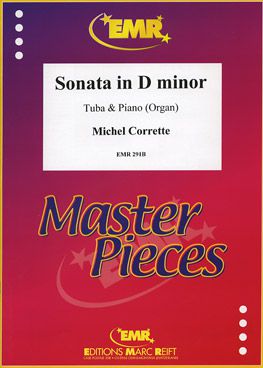 |
| ||
| Michel CORRETTE Publisher : Marc Reift Genre : Instrumental music |
(EMR291B) : € 24,33 | ||
